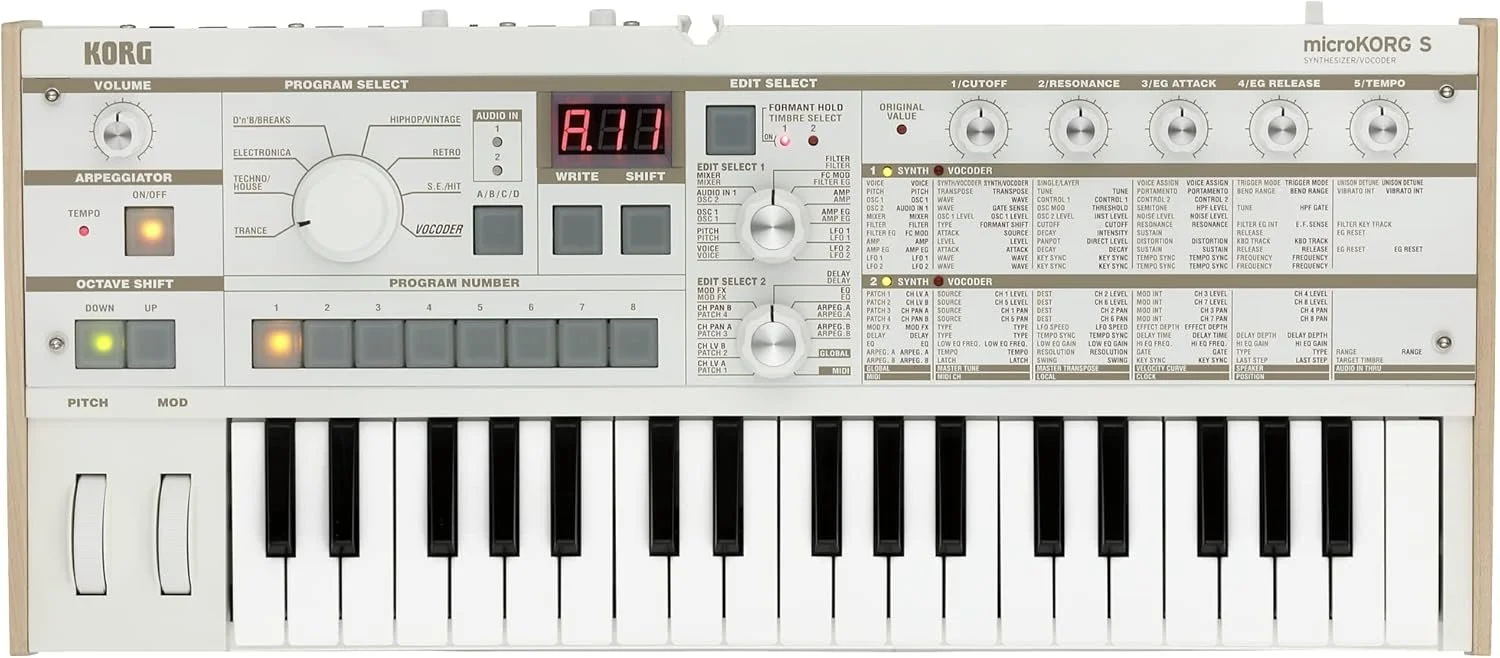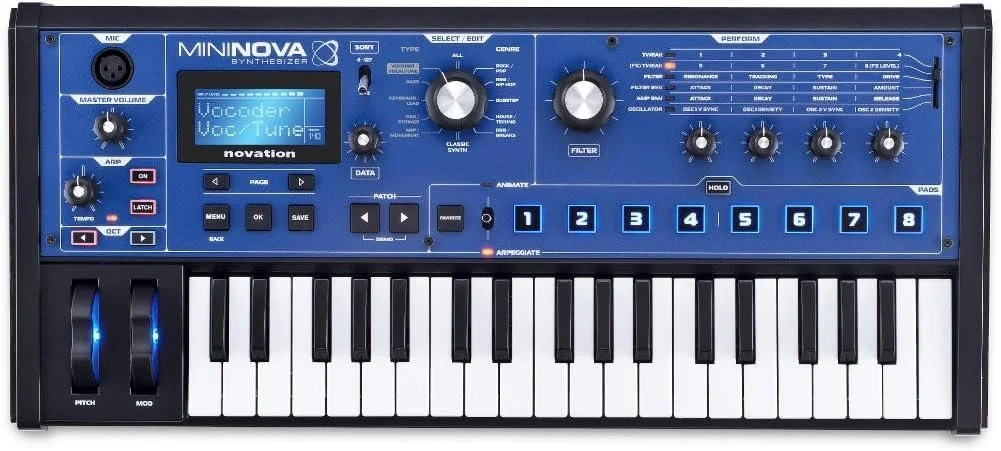Best Beginner Synth Keyboard: Top Picks for Budding Musicians 2024
If you've ever dreamed of creating rich, atmospheric sounds or iconic electronic music, getting your hands on a synth keyboard is the first step. But for beginners, the variety of options can be overwhelming. The good news is, there are many affordable synth keyboards that are both beginner-friendly and capable of producing fantastic sounds. In this article, we'll help you find the best beginner synth keyboard to kickstart your musical journey.
What Makes a Synth Keyboard Good for Beginners?
Before diving into our list, it’s important to know what features are beneficial for those just starting out:
Ease of Use: For beginners, an intuitive interface with minimal learning curve is ideal.
Preset Sounds: A good selection of preset sounds helps you explore without needing to program everything yourself.
Price: As a beginner, you may not want to invest heavily before you're sure synths are for you. Affordability is key.
Portability: Compact designs make it easy to experiment anywhere.
Connectivity: USB or MIDI connections are essential for integrating your synth with other music gear or software.
Top 5 Beginner Synth Keyboards of 2024
1. Korg microKORG
The Korg microKORG is a favorite among both beginners and pros due to its compact size, intuitive layout, and iconic vintage sounds. It comes loaded with 128 presets, giving you a wide palette of sounds to explore right out of the box.
Features: 37 mini keys, arpeggiator, 128 presets, built-in vocoder.
Why It’s Great for Beginners: Easy-to-use interface and lots of presets to help you get started.
Pros: Lightweight and portable, classic analog sounds, versatile.
Cons: Mini keys may feel cramped to some.
2. Arturia MicroFreak
The Arturia MicroFreak is an exciting and affordable choice for those looking to explore the experimental side of synthesis. With a mix of analog and digital oscillators and a distinctive touch-sensitive keyboard, it offers a different kind of creative experience.
Features: 25 pressure-sensitive keys, 11 oscillator modes, sequencer.
Why It’s Great for Beginners: The synth comes with many inspiring preset sounds, and the oscillator variety is ideal for learning different synthesis techniques.
Pros: Unique sound capabilities, budget-friendly, lightweight.
Cons: Touch keyboard can take time to get used to.
3. Roland JUNO-DS61
The Roland JUNO-DS61 is perfect for those who want a full-size synth with professional-quality sounds. It offers plenty of built-in patches, from piano to strings to classic synth sounds, making it a versatile choice for learning.
Features: 61 full-size keys, built-in vocal effects, 1200 patches.
Why It’s Great for Beginners: Plenty of presets and simple controls make it easy to get started.
Pros: Full-size keys, great sound quality, versatile patches.
Cons: Larger and more expensive compared to other beginner options.
4. Yamaha Reface CS
The Yamaha Reface CS is a compact and powerful synth that packs the same iconic sound as some of Yamaha's legendary models. It’s perfect for beginners who want a portable and accessible entry into synthesis.
Features: 37 mini keys, polyphonic with up to 8 voices, 5 oscillator types.
Why It’s Great for Beginners: Simple controls allow you to quickly create and modify sounds without any deep menu diving.
Pros: Classic Yamaha sound, easy to use, lightweight.
Cons: Mini keys might not suit everyone.
5. Novation MiniNova
The Novation MiniNova is another compact synth with a lot to offer. It comes with hundreds of sounds and is perfect for tweaking and creating new tones. Its vocoder feature also adds a fun layer to experimenting.
Features: 37 mini keys, 256 onboard sounds, arpeggiator, vocoder.
Why It’s Great for Beginners: An intuitive layout, built-in sounds, and the vocoder make it exciting for beginners.
Pros: Versatile sounds, vocoder feature, good build quality.
Cons: Small keys, somewhat complex menu navigation.
How to Choose the Right Synth Keyboard for You
When choosing a beginner synth keyboard, think about what kind of music you want to make. If you’re interested in classic analog sounds, the Korg microKORG or Yamaha Reface CS are fantastic choices. If you like experimenting, the Arturia MicroFreak offers unique sound design possibilities. For those wanting something with full-size keys and a lot of versatility, the Roland JUNO-DS61 may be the best option.
Also, consider portability—compact synths like the microKORG and MicroFreak are easy to take on the go, while the larger JUNO-DS61 may be better suited for a more permanent setup.
Frequently Asked Questions
Q: Can I use a beginner synth keyboard for professional music production?
A: Absolutely. Many professional producers use budget-friendly synths like the microKORG for studio recordings or live performances. They are more than capable of producing great sounds.
Q: Should I get a synth keyboard with mini keys or full-size keys?
A: This depends on your comfort and portability needs. Mini keys are great for travel and casual use, but if you have experience with piano or want a more traditional playing experience, full-size keys are preferable.
Q: Do I need external speakers or headphones?
A: Yes, most synth keyboards do not have built-in speakers, so you’ll need external speakers or headphones to hear what you're playing.
Conclusion
Finding the best beginner synth keyboard doesn’t have to be complicated. Whether you want a compact option like the Yamaha Reface CS or something versatile with full-size keys like the Roland JUNO-DS61, there's a beginner-friendly synth out there to help you bring your musical ideas to life. With these picks, you can start your journey into the exciting world of synthesis and begin creating music right away.
Ready to start your journey into synthesis? Let us know which synth keyboard you picked, or if there’s a model you love that we missed!




